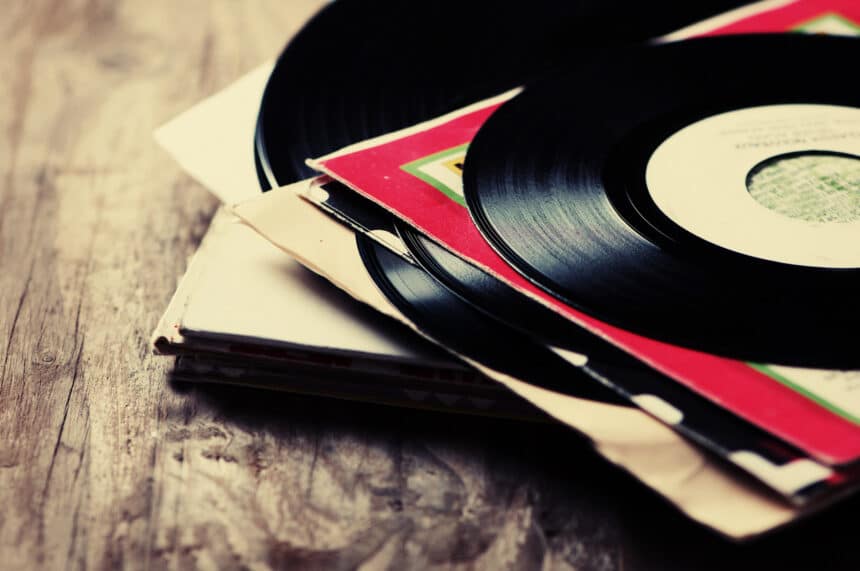They say the Long Play 33rpm vinyl record was introduced around 1948. The record has found its way through many iterations but it is essentially still the same. Allowing for approximately 20 minutes a side it is said to provide the best sound quality in recorded form. As we witness a resurgence of vinyl records a new generation of music lovers, who were unexposed to record players and the vinyl medium, have quickly integrated into the analog world.
Music is an enlightening force that seeps deep into our human psyche. Memories are instantly sprung with a simple tune we hear whistled down a corridor. Or an old favorite song played over the radio can pull you back to that time you first heard it. And for so many today the vinyl record is what they envision when they think of those songs. As old records are pulled from the shelf it triggers episodic memories that take us back to the first time we heard a special album.
But what of these old original vinyl records today? How do they shape up? Do these records disintegrate? How long do they last? The answer might surprise you. If you take care of your records properly they can last a long time. As records started to become the mainstream medium for listening to music the industry had hundreds of vinyl pressing plants compared to today where there are way less. Records were easy to transport, much like a magazine, to parties or a friend’s house to share your music.
For most people the records seemed almost disposable. First the record would have to be identified as yours so you would write your name on the cover to make sure you didn’t mix it up with someone else’s records. And as we listened to records they were strewn about while you ogled over the cover. This is the type of handling that ends up causing the most damage to records.
If a record is properly taken care of it can last well over 100 plays.
The main enemies for records are heat, dust, oily fingerprints and not properly storing the record. A record should always be returned to its inner sleeve. The sleeve should then be put back into its cover with the open end facing upward into the cover. This helps assure your record will be safe from dust.
Handling the vinyl records is an important part of keeping records sounding good. Not pinching the vinyl as you pull it from the sleeve. When the record is out of its sleeve the record should only visit the turntable. When you’re done listening it should be put back into the sleeve. These simple tips can earn many years to the life of a record. Two other important things to help preserve the vinyl is to store them in a clean, cool room with the records stacked like books on a shelf. These are the best way to keep your records from warping or getting dust inside the jacket. If this is done your records can last for Hundreds of years.
Records don’t exactly disintegrate in thin air. However, records can deteriorate over time because of use and handling.
Records can be exposed to elements that can cause them to be unplayable. But there are still records from the early 1940s that still can be played on a record player. It might not sound the best but it is still here and able to playback the sounds that were recorded on it. If records are left in the sun or heat they can warp. Depending on how bad the wrap you may still be able to play a vinyl record or record might still be flattened.
Once a record gets a scratch on the playing surface there is nothing you can do to remove the click or pop. Depending on the depth of the scratch the record can still be played, only your threshold can determine how much of the crackling you can take. Just like anything else there are things that can render the album useless but taking care of your things are what inevitably keeps them like new.
Records are fairly resilient but they can break under enough pressure. If placed incorrectly you can crack a record. This is probably the most egregious thing you can do to an LP. Not as delicate as a pane of glass but still enough care should be taken to not allow the record to be in a position to be cracked or broken. Once this happens you really can’t play your records on a turntable and have the needle engage in the groove. The crack or break will ruin your needle if you do play over it. This is not worth it as the needle can be as much as 20 albums.
The simple answer is records do not disintegrate on their own and can last a few lifetimes if taken care of properly. The art of collecting vinyl records is all about preservation.
Vinyl records have preserved not just audio but a special moment in time. It is an archive. It is a slice of time that can provide answers much like the cave paintings thousands of years ago. If records are properly taken care of they could become one of the largest archives of information. There Have been millions and millions of records already pressed and with the resurgence of vinyl records in the last few years we are seeing a steep rise of vinyl records flooding the market once again. I think what people are learning in this new revival is the importance of caring about your vinyl records and the benefits of doing so. Records can be an investment. So if you choose wisely and love your albums, who knows what you could have in 20 years from now.


Leave a Reply